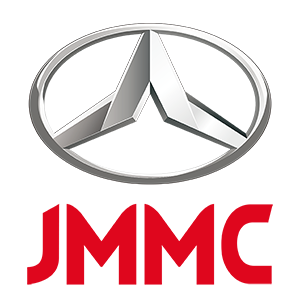Exploring the Light-Duty Truck Market
Release time:
2023-05-18

Are you in search of a reliable and versatile vehicle that can handle your daily transportation needs and more? Look no further than the world of light-duty trucks. With their growing popularity and impressive capabilities, light-duty trucks have become a top choice for individuals and businesses alike. From pickup trucks to vans and SUVs, these vehicles offer a perfect blend of power, practicality, and efficiency. In this article, we will delve into the fascinating realm of light-duty trucks, exploring their historical significance, advancements in design and technology, environmental considerations, market trends, and more. So, fasten your seatbelts and join us on this exciting journey through the world of light-duty trucks!
The Growing Popularity of Light-Duty Trucks
Light-duty trucks have witnessed a surge in popularity in recent years, captivating the hearts of consumers across the globe. These versatile vehicles have become an indispensable asset for individuals and businesses alike, offering a combination of power, practicality, and efficiency. In this article, we will delve into the significance of light-duty trucks, their historical evolution, advancements in design and technology, and their impact on the global market. Join us on this journey as we explore the fascinating world of light-duty trucks.
Understanding the Significance of Light-Duty Trucks
Light-duty trucks hold a special place in the automotive industry due to their ability to fulfill a wide range of purposes. From personal use to commercial applications, these vehicles excel in meeting the diverse needs of consumers. They strike the perfect balance between a comfortable ride for daily commutes and the capability to tackle challenging tasks. With their adaptable nature, light-duty trucks have become an indispensable tool for industries such as construction, manufacturing, and last-mile logistics.
Historical Overview of Light-Duty Trucks
To truly appreciate the significance of light-duty trucks, we must take a glance back at their historical roots. The concept of these vehicles originated in the early 20th century when manufacturers recognized the need for a lighter alternative to heavy-duty trucks. This paved the way for the development of smaller, more maneuverable trucks capable of transporting goods and accommodating passengers simultaneously. Over the years, light-duty trucks have undergone significant transformations, embracing innovative designs, enhanced performance, and advanced technologies.
Advancements in Design and Technology
Design and technology advancements have played a pivotal role in shaping the evolution of light-duty trucks. Manufacturers have focused on enhancing both the exterior and interior aspects of these vehicles, ensuring optimal comfort and functionality. Streamlined aerodynamics, stylish body contours, and spacious interiors are just a few of the features that modern light-duty trucks boast. Moreover, technological innovations such as advanced infotainment systems, seamless connectivity, and smart integration have elevated the driving experience to new heights.
Shift towards Eco-Friendly Solutions
As the world embraces sustainability, the automotive industry is responding with eco-friendly solutions, and light-duty trucks are no exception. With the growing concern for environmental impact, manufacturers are introducing hybrid and electric variants of these vehicles. Electric light-duty trucks offer emission-free transportation while maintaining the power and versatility synonymous with their counterparts. These eco-conscious options contribute to a greener future and align with the global efforts to combat climate change.
Segment Analysis: Exploring Different Light-Duty Truck Types
-
Pickup Trucks: The All-American Favorite
Pickup trucks hold a special place in the hearts of Americans. With their rugged appeal and versatile cargo beds, they have become an integral part of American culture. From hauling heavy loads to embarking on off-road adventures, pickup trucks offer the perfect combination of style and functionality. They are available in various sizes, allowing consumers to choose the one that best suits their needs, whether it's for personal use or business purposes.
-
Vans: Versatility on Wheels
Vans epitomize versatility, offering ample space for passengers and cargo alike. These light-duty trucks come in different configurations, ranging from compact models ideal for urban maneuverability to spacious options that cater to large families or commercial transport needs. Vans provide a comfortable and efficient solution for businesses such as delivery services, shuttle operations, and mobile workshops, while also serving as a convenient mode of transportation for families and adventure enthusiasts.
-
SUVs: Blending Power and Practicality
Sport Utility Vehicles (SUVs) have gained immense popularity in the light-duty truck segment. Combining the ruggedness of a truck with the comfort of a passenger car, SUVs offer a compelling combination of power and practicality. These vehicles provide ample seating capacity, generous cargo space, and the ability to tackle various terrains. SUVs are favored by individuals and families who seek a versatile vehicle capable of accommodating both daily commuting and weekend getaways. With their robust capabilities, SUVs have become a go-to choice for those who desire a well-rounded vehicle that can handle a multitude of tasks.
Performance and Efficiency Considerations
When considering a light-duty truck, performance and efficiency are key factors that influence the decision-making process. Let's delve into some important considerations in these areas.
A. Engine Options and Fuel Efficiency
Light-duty trucks offer a range of engine options, including gasoline, diesel, and hybrid powertrains. Gasoline engines provide a balance between power and fuel efficiency, making them a popular choice for everyday use. Diesel engines, on the other hand, offer robust towing capabilities and better fuel efficiency, making them suitable for heavy-duty tasks. Additionally, hybrid powertrains combine an internal combustion engine with electric motors, delivering improved fuel economy and reduced emissions.
B. Towing and Payload Capacities
One of the primary reasons individuals and businesses opt for light-duty trucks is their towing and payload capabilities. These trucks are engineered to handle a variety of towing needs, whether it's hauling a boat, a trailer, or equipment for a job site. Manufacturers provide towing and payload ratings that specify the maximum weight a truck can safely tow and carry. It's crucial to consider these ratings and choose a truck that matches your specific towing and payload requirements.
C. Off-Road Capabilities
For those seeking adventure and off-road capabilities, some light-duty trucks are specifically designed to handle rugged terrains. Features such as enhanced ground clearance, robust suspension systems, and specialized off-road driving modes ensure that these trucks can conquer challenging trails and uneven surfaces. Off-road enthusiasts and outdoor adventurers can rely on light-duty trucks to take them to their desired destinations, providing a thrilling driving experience along the way.
Technological Advancements and Safety Features
Technological advancements have revolutionized the automotive industry, and light-duty trucks have not been left behind. Let's explore the cutting-edge technologies and safety features that are now an integral part of these vehicles.
A. Infotainment Systems and Connectivity
Modern light-duty trucks are equipped with advanced infotainment systems that offer seamless connectivity and entertainment options. These systems typically include touchscreens, smartphone integration, voice commands, and Bluetooth connectivity. Occupants can enjoy features such as hands-free calling, music streaming, navigation assistance, and access to various mobile applications. Infotainment systems have become an essential part of the driving experience, keeping occupants entertained and connected while on the road.
B. Advanced Driver Assistance Systems (ADAS)
Safety is a paramount concern for both manufacturers and consumers, and light-duty trucks are equipped with advanced driver assistance systems (ADAS) to enhance on-road safety. ADAS features include adaptive cruise control, lane-keeping assist, automatic emergency braking, blind-spot monitoring, and rearview cameras, among others. These technologies provide additional layers of protection, helping drivers avoid collisions, maintain lane discipline, and mitigate potential risks. ADAS systems have significantly improved overall safety standards, making light-duty trucks safer than ever before.
C. Electric and Autonomous Options
With the rise of electric vehicles (EVs) and autonomous driving technology, light-duty trucks are embracing these advancements. Electric light-duty trucks offer the benefits of zero-emission driving, reduced operational costs, and quiet operation. They cater to eco-conscious consumers and businesses that prioritize sustainability. Furthermore, autonomous driving technology is gradually being integrated into light-duty trucks, offering features such as self-parking, lane-keeping, and highway driving assistance. These advancements are paving the way for a future where light duty trucks will not only be efficient and capable but also autonomous, providing a safer and more convenient driving experience.
Market Trends and Future Projections
The light-duty truck market is dynamic and continuously evolving. Understanding the current trends and future projections is essential for both manufacturers and consumers. Let's explore some key aspects in this regard.
A. Shifting Consumer Preferences
Consumer preferences in the light-duty truck market are subject to change as new technologies and trends emerge. Currently, there is a growing demand for vehicles that offer a blend of power, efficiency, and versatility. Consumers seek trucks that can handle daily commuting needs while also accommodating their lifestyle requirements, whether it's for recreational activities, family adventures, or work-related tasks. Manufacturers are keenly observing these preferences and are constantly adapting their offerings to meet the evolving demands of consumers.
B. Impact of Environmental Regulations
Environmental regulations play a significant role in shaping the light-duty truck market. As governments worldwide focus on reducing carbon emissions and promoting sustainability, manufacturers are compelled to develop more eco-friendly solutions. Stricter fuel efficiency standards and emissions regulations are driving the adoption of hybrid and electric light-duty trucks. In the coming years, we can expect further advancements in electric and alternative fuel technologies to meet the stringent environmental requirements.
C. Emerging Market Opportunities
The light-duty truck market is not limited to developed regions; emerging markets also present significant opportunities for growth. Rapid urbanization, infrastructure development, and increasing disposable incomes in emerging economies contribute to the rising demand for light-duty trucks. As these markets continue to expand, manufacturers are strategically targeting them to establish a strong presence and cater to the unique needs and preferences of consumers in these regions.
Challenges and Potential Roadblocks
While the light-duty truck market holds immense potential, it is not without its challenges and roadblocks. Let's explore some key hurdles that need to be addressed.
A. Infrastructure for Electric Trucks
As the demand for electric light-duty trucks grows, the availability of charging infrastructure becomes crucial. Adequate charging stations need to be established to support the widespread adoption of electric trucks. Governments, along with private entities, are working on expanding charging networks, but further investments and collaborations are required to ensure seamless charging accessibility for electric truck owners.
B. Regulatory Hurdles and Incentives
Navigating regulatory frameworks can pose challenges for manufacturers and consumers alike. Regulatory hurdles such as emissions standards, safety requirements, and import/export regulations can impact the availability and affordability of light-duty trucks in certain markets. However, governments can play a crucial role by providing incentives and subsidies for eco-friendly vehicles, encouraging consumers to opt for light-duty trucks that align with environmental goals.
C. Skepticism and Resistance
As with any new technology or trend, skepticism and resistance may arise. Some consumers may have reservations about the performance, reliability, and long-term viability of light-duty trucks, especially when it comes to electric or autonomous options. Overcoming this skepticism requires effective communication, transparency, and providing tangible benefits and evidence to showcase the advantages and potential of light-duty trucks.
The Global Light-Duty Truck Market
The light-duty truck market exhibits regional variations in terms of preferences and market dynamics. Let's explore some key aspects of the global light-duty truck market.
A. Regional Variations and Preferences
Different regions have distinct preferences when it comes to light-duty trucks. For example, pickup trucks enjoy immense popularity in North America, where they are deeply ingrained in the cultural fabric. In Europe, compact vans and SUVs find favor due to their versatility and practicality. Understanding these regional variations is crucial for manufacturers to tailor their offerings and marketing strategies to cater to the specific demands of each market.
B. International Market Competition
The global light-duty truck market is highly competitive, with manufacturers vying for market share and constantly innovating to stay ahead. Established truck brands, as well as emerging players, compete to capture the attention of consumers with their unique offerings. This competition fosters innovation, driving manufacturers to continuously improve their vehicles and introduce new features and technologies. As the market expands and consumer preferences evolve, international competition will continue to shape the landscape of the light-duty truck market.
The Role of Light-Duty Trucks in Industry and Commerce
Light-duty trucks play a pivotal role in various industries and commercial sectors. Let's explore some key areas where these trucks are instrumental.
A. Light-Duty Trucks in Construction and Manufacturing
Construction and manufacturing industries heavily rely on light-duty trucks for their operational needs. These trucks are used for transporting equipment, tools, and materials to job sites. Their versatility and payload capacities make them ideal for hauling heavy loads, while their maneuverability ensures easy access to construction sites. Light-duty trucks provide a reliable and efficient means of transportation, facilitating smooth operations in these industries.
B. Last-Mile Delivery and Logistics
In the realm of logistics and last-mile delivery, light-duty trucks have become indispensable. With the rise of e-commerce and the demand for efficient and timely deliveries, these trucks enable businesses to transport goods to customers' doorsteps. Their maneuverability in urban areas, combined with their cargo capacity, makes them ideal for navigating through tight streets and making multiple deliveries in a single trip. Light-duty trucks contribute to the seamless functioning of the logistics industry and play a crucial role in meeting the demands of modern-day consumers.
Consumer Perspectives and Buying Considerations
When consumers consider purchasing a light-duty truck, several factors come into play. Let's explore some key considerations from a consumer's perspective.
A. Practicality and Utility
Consumers evaluate light-duty trucks based on their practicality and utility. They seek a vehicle that can handle their day-to-day transportation needs while also offering the flexibility to accommodate their specific requirements. Whether it's for personal use, work-related tasks, or recreational activities, consumers prioritize trucks that provide the right balance of space, towing capabilities, and overall functionality to suit their lifestyle.
B. Brand Reputation and Resale Value
Brand reputation and resale value are significant factors influencing purchasing decisions. Consumers place their trust in well-established brands known for producing reliable and durable light-duty trucks. They consider the brand's track record, customer satisfaction, and the resale value of the vehicle over time. Opting for a reputable brand ensures confidence in the quality and longevity of the truck, as well as potential benefits in terms of resale or trade-in value in the future.
C. Personalization Options
Personalization is another aspect that consumers value when choosing a light-duty truck. They seek options to customize their vehicle according to their preferences and specific needs. Whether it's choosing different trim levels, interior features, or exterior accessories, the ability to tailor the truck to their liking adds a sense of individuality and ownership. Manufacturers that offer a range of customization options can attract consumers who prioritize personalization and desire a truck that reflects their personality.
FAQs: Answers to Common Questions
Let's address some common questions that consumers may have when exploring the light-duty truck market.
A. What distinguishes light-duty trucks from other vehicle types?
Light-duty trucks are characterized by their versatility, capable of serving both personal and commercial purposes. They offer a balance of power, payload capacity, and passenger comfort, making them suitable for a wide range of applications.
B. Are light-duty trucks suitable for everyday use?
Yes, light-duty trucks are designed for everyday use. They provide a comfortable driving experience, efficient fuel consumption, and the ability to handle various tasks, making them a practical choice for daily commuting and other regular activities.
C. How do light-duty trucks compare to heavy-duty trucks in terms of capability?
Light-duty trucks differ from heavy-duty trucks primarily in their size, towing capacity, and payload capabilities. Light-duty trucks are smaller and generally have lower towing and payload capacities compared to heavy-duty trucks. They are designed for lighter tasks such as personal use, light hauling, and recreational activities. Heavy-duty trucks, on the other hand, are larger and more powerful, capable of handling heavier loads and towing significant weights.
D. What is the average lifespan of a light-duty truck?
The average lifespan of a light-duty truck can vary depending on various factors such as maintenance, usage, driving conditions, and build quality. With proper care and regular maintenance, a well-maintained light-duty truck can typically last for many years, often exceeding the 150,000-mile mark or more.
E. Are there any tax incentives for purchasing light-duty trucks?
Tax incentives for purchasing light-duty trucks can vary based on the region and specific regulations. In some countries, certain types of light-duty trucks, particularly those with alternative fuel options or meeting specific emission standards, may be eligible for tax credits, deductions, or other incentives. It is advisable to consult with local authorities or tax professionals to understand the specific incentives available in your region.
F. What impact do light-duty trucks have on the environment?
Light-duty trucks have an impact on the environment primarily through their fuel consumption and emissions. However, advancements in technology have led to the development of more fuel-efficient and eco-friendly light-duty trucks, including hybrid and electric models. These vehicles help reduce carbon emissions and contribute to a cleaner and greener transportation landscape.
G. Can light-duty trucks be used for recreational purposes?
Yes, light-duty trucks are often used for recreational purposes. Their versatility, towing capacity, and off-road capabilities make them suitable for activities such as camping, boating, and outdoor adventures. Many light-duty trucks come with features and options specifically designed to enhance the recreational experience, such as towing packages, off-road packages, and spacious interiors for gear and equipment.
H. How do electric light-duty trucks perform in extreme weather conditions?
Electric light-duty trucks generally perform well in extreme weather conditions. Electric drivetrains are not affected by temperature changes to the same extent as internal combustion engines. However, it's important to note that extreme cold weather can slightly impact the range of electric vehicles due to increased energy consumption for heating purposes. Manufacturers are continuously improving electric vehicle technology to ensure optimal performance in a wide range of weather conditions.
By considering these frequently asked questions, consumers can gain a better understanding of light-duty trucks and make informed decisions based on their specific needs and preferences.
In conclusion, light-duty trucks have revolutionized the automotive industry with their versatility, performance, and evolving technologies. From the all-American favorite pickup trucks to the practicality of vans and the power of SUVs, these vehicles cater to a wide range of needs and preferences. With advancements in fuel efficiency, safety features, and the emergence of electric and autonomous options, light-duty trucks continue to meet the demands of consumers while considering environmental concerns. So, whether you're in construction, logistics, or simply seeking a reliable vehicle for everyday use, the light-duty truck market offers an array of options to suit your requirements. Stay informed, explore the market trends, and make an informed decision when choosing your next light-duty truck.
Read More:
List of the 15 Best China Bus Brands 2023
TOP 9 China Electric Pickup Brands
Top 10 China Truck Manufacturers 2023
Top 10 China Pickup Brands 2022 ( Sales List )
previous page
previous page:








